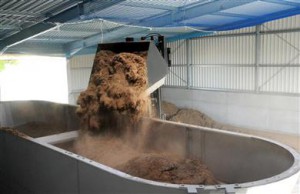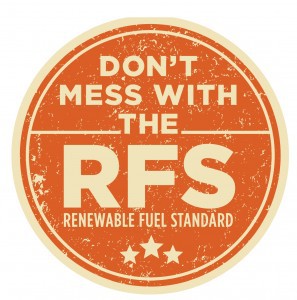California’s Low Carbon Fuel Standard (LCFS) is reaching its halfway point and a new analysis from the Renewable Fuels Association (RFA) find that grain-based ethanol has provided nearly half of the greenhouse gas (GHG) reductions achieved under the first five years of the program. Seven years ago, on April 23rd, California Air Resources Board (CARB) formally adopted the LCFS, and it officially kicked off in 2009. The program requires fuel suppliers to reduce carbon intensity (CI) of gas and diesel fuels by at least 10 percent between 2011 and 2020.
![]() RFA says that when the legislation was adopted there was concern that corn-based ethanol would not succeed under the program. However, RFS says that according to data released by CARB recently, consumption of grain ethanol has increased under the LCFS and the biofuel has been responsible for 46 percent of the total carbon credits and nearly 75 percent of the credits generated by fuels that replace gas. (One credit is equivalent to 1 metric ton of GHG reduction). CARB reports that of the 16.55 million credits generated since enforcement began in 2011, grain ethanol is responsible for 7.58 million metric tons (MMT). To date, grain ethanol has provided substantially more credits than any other fuel used under the LCFS.
RFA says that when the legislation was adopted there was concern that corn-based ethanol would not succeed under the program. However, RFS says that according to data released by CARB recently, consumption of grain ethanol has increased under the LCFS and the biofuel has been responsible for 46 percent of the total carbon credits and nearly 75 percent of the credits generated by fuels that replace gas. (One credit is equivalent to 1 metric ton of GHG reduction). CARB reports that of the 16.55 million credits generated since enforcement began in 2011, grain ethanol is responsible for 7.58 million metric tons (MMT). To date, grain ethanol has provided substantially more credits than any other fuel used under the LCFS.
However, as shown in new RFA report, fuels that CARB initially expected to generate large amounts of credit — such as imported sugarcane ethanol, electricity, hydrogen — have accounted for only a small share of total credit generation.
RFA says corn-ethanol has provided significantly more carbon reductions that anticipated because, as CARB reports, “the volume of lower-CI corn ethanol will far exceed the 2009 estimates” and ethanol plants “have made efficiency improvements” that CARB had initially overlooked. Meanwhile, as part of CARB’s LCFS “re-adoption” process in 2015, the agency also made revisions to its ILUC penalty for corn ethanol, reducing it by roughly one-third. While CARB’s ILUC penalty remains grossly exaggerated, says RFA, the result of these changes is that most Midwest corn ethanol reduces GHG emissions by 25–35 percent compared to gasoline under the LCFS.
“California regulators are finally recognizing what we in the industry have known for decades — that ethanol is a high octane, low-cost alternative fuel that is readily available and offers meaningful GHG savings compared to gasoline,” said RFA President and CEO Bob Dinneen.Read More










